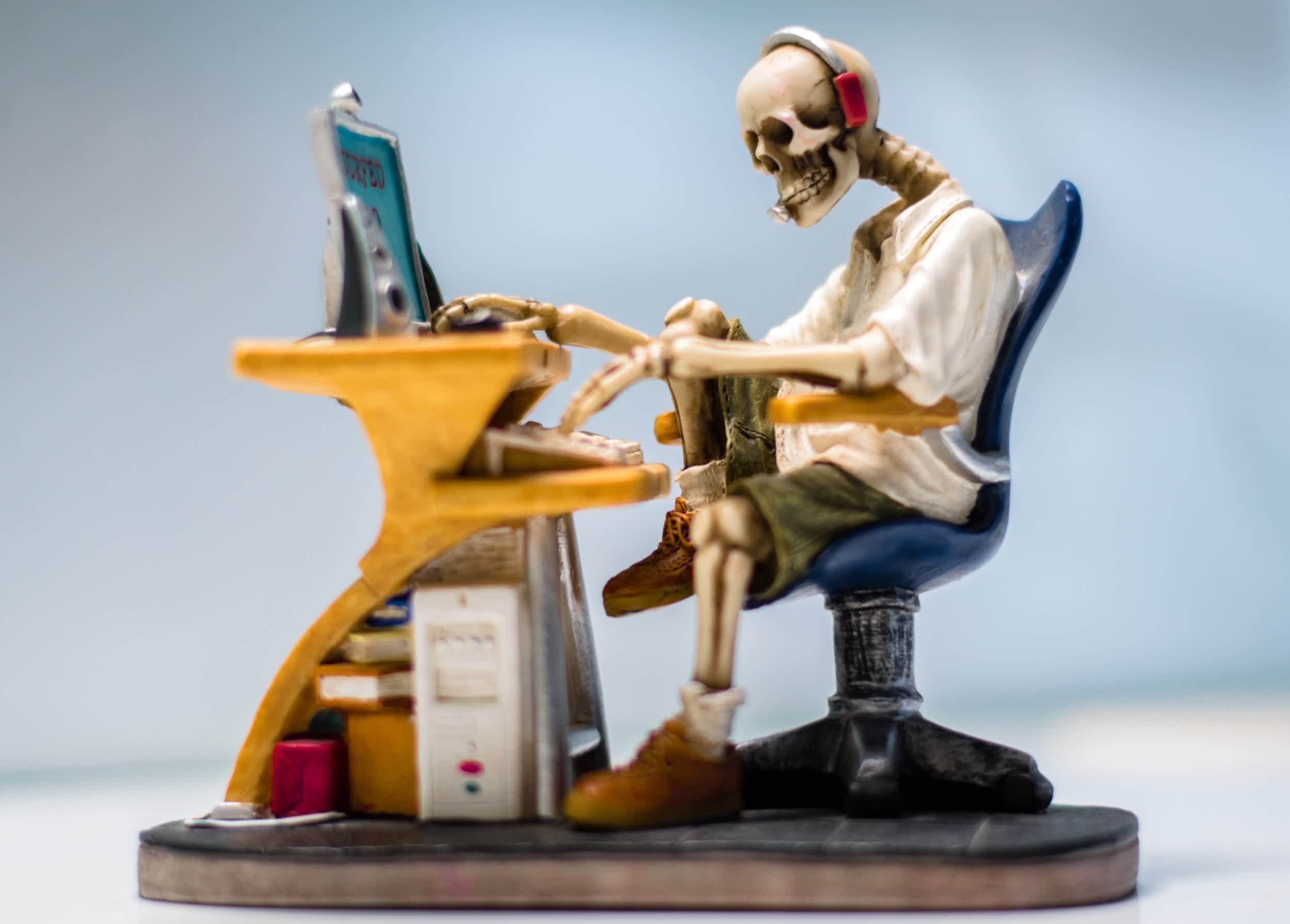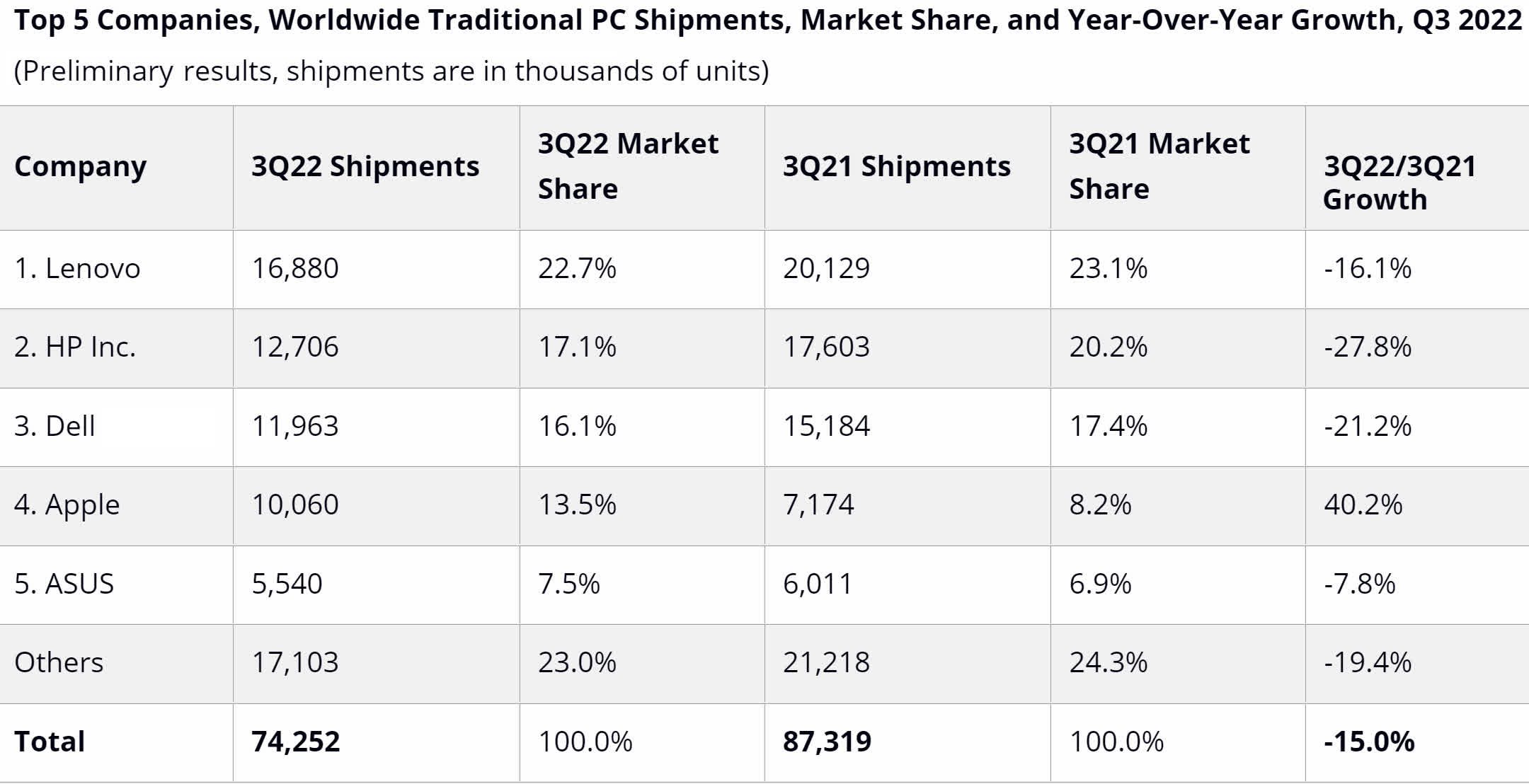In a nutshell: Shipments of traditional PCs continued their downward trajectory in the third quarter. According to International Data Corporation's (IDC) latest report, global shipments totaled 74.3 million units during the three-month period ending September 30, down 15 percent from the 87.3 million PCs that shipped during the same timeframe a year earlier.

Lenovo led the pack with 16.9 million PC shipments, a contraction of 16.1 percent year over year. HP finished in second place with 12.7 million units shipped followed by Dell with 12 million PCs shipped. In fact, each of the top five manufacturers saw shipments dip compared to the year-ago quarter except for Apple.
The Cupertino-based company moved 10.1 million Macs during Q3, a 40 percent increase over the 7.2 million units shipped a year ago.
IDC blamed the year-over-year dip on a combination of cooling demand and uneven supply. Promos from Apple and others helped to soften the fall, said IDC research manager Jitesh Ubrani. IDC further noted that shipment volumes remain well above pre-pandemic levels when sales were largely driven by enterprises refreshing their fleets.
The traditional PC market isn't the only category that has experienced declines as of late. Gaming monitors are expected to experience the first year-over-year decline ever in 2022 and smartphone shipments continue to fall. Hard drive shipments dropped 33 percent year over year in the second quarter to approximately 45 million units.
It's not all bad news, however, as supply constraints are starting to ease. Valve recently lifted the reservation system for its Steam Deck handheld and can now get units to buyers within 1-2 weeks. Tablet and Chromebooks are also starting to normalize as demand for cheaper alternatives to PCs persists.
IDC said it will also be keeping an eye on the average selling prices (ASPs) of PCs in the current quarter. ASPs were up five quarters in a row to $910 in Q1 - the highest level since 2004 - but with demand cooling and promotions in full swing, the ASP climb has reversed.
Image credit: Oussama Bergaoui
https://www.techspot.com/news/96265-pc-makers-continue-struggle-declining-shipments.html
